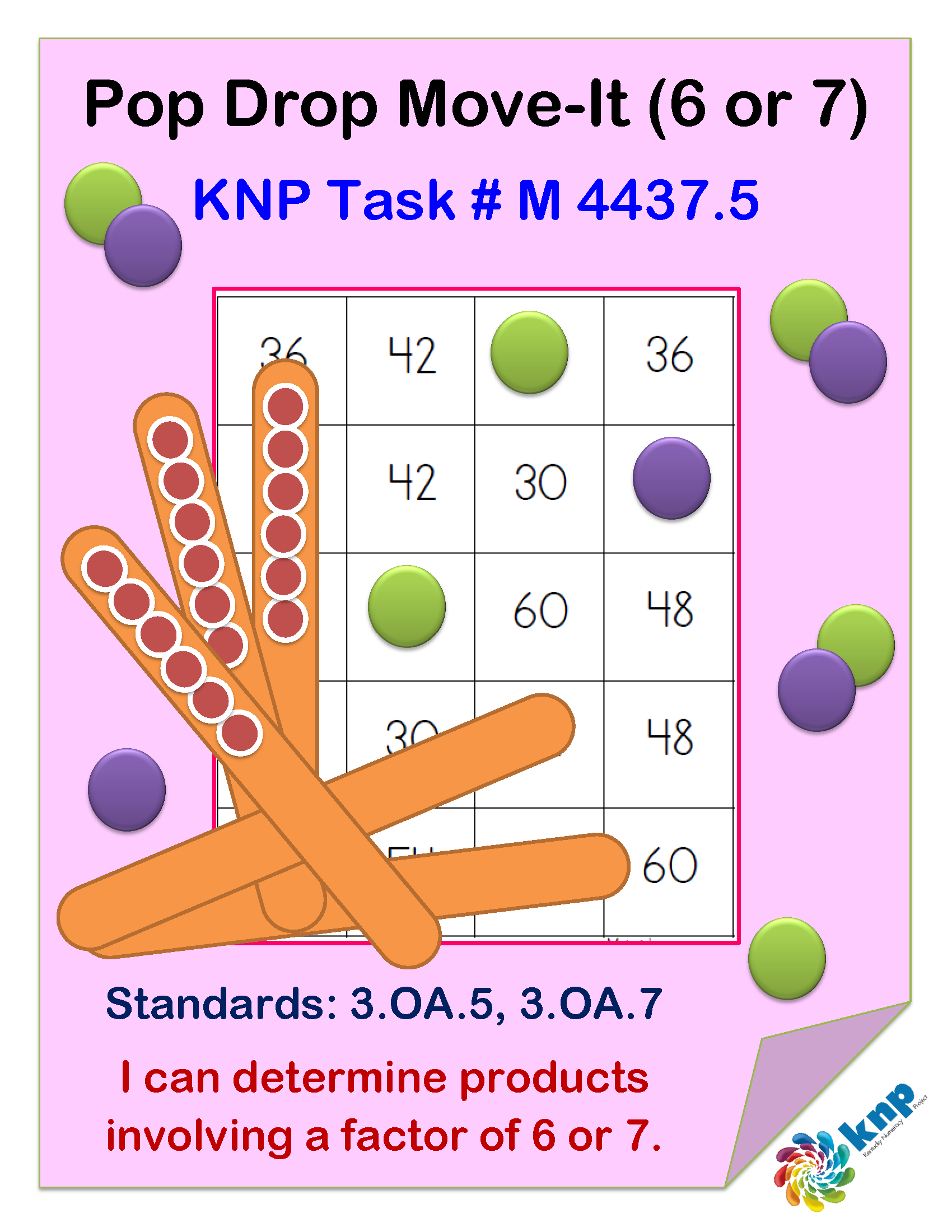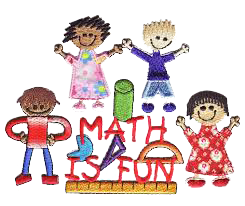"Pop Drop Move-It (6s and 7s)"
KNPIG ID #M 4437.5
What's this activity about?
This game is poppin’ with fun and action! Hard to believe for a math game? Well, math is fun! You and your child will use popsicle sticks and markers to toss and solve multiplication problems. You will also have each other’s markers “move-it” off the game board as you try to get rid of your own markers. The first person to use all their markers wins. This game will keep you moving and multiplying until those fives and twos facts “pop” right into your child’s head.
What materials do we need?
Multiples of 6- Set of 12 dotted popsicle sticks with five red dots and one blue dot on each stick, Pop Drop Move-It (multiples of 6) game board, multiples of six recording sheets OR Multiples of 7- Set of 12 dotted popsicle sticks with five red dots and two blue dots on each stick, Pop Drop Move-It (multiples of 7) game board and multiples of seven recording sheets
Two different colored game pieces (these can be bingo covers, beans or small pieces of paper)
Create the dotted popsicle sticks- Label 12 with five blue dots and one red dot on one side of the stick. Label another set with other 12 with five blue dots and two red dots on one side of the stick. The back of the sticks will be blank.

How do we play?
- Players choose game piece and select eight of them for the game.
- Get the set of sticks with 6 dots, the matching game board, and recording sheet.
- Taking turns, players will drop ten popsicle sticks and say how many red dots are face down, how many blue dots are face down and how many dots are hidden in total. Then record it on their sheet.
- Player will then cover the number of hidden dots on the board.
- To “Move It”: If either player gets a number that is already covered by the other player, they can tell that player to “move it” and put their cover on the number.
- The first player to use all of their covers wins.
*When you have mastered the six board, you can repeat the game using the sevens*
Where’s the Math?
The math in this game has a lot to do with the math your child is learning in school. Your child is working toward mastery of their multiplication facts by the end of third grade. Before that happens though, they are working towards a deeper understanding of what it means to multiply. With this game, your child will see how multiplication is represented in three different ways:
-As a number added to itself repeatedly.
-As total number of groups multiplied by the number in each group.
-As a total in a single group multiplied by the total number of groups
They are learning how to represent multiplication in writing. They will practice writing down the facts they are finding in two different ways. The repetition of the facts and the act of writing them down will help your child recall them faster and more accurately.
Things to Think About:
As always when working with children it is important to remember to BE PATIENT. This game is pretty exciting. You’ll be tossing popsicle sticks and moving each other’s game pieces off the board; it’s easy to lose the math in this type of gameplay. Staying focused while having fun is a challenge. This game is a very tactile way of looking at multiplication. Kids can put their hands on the math, and then get practice writing out the fact on paper. Children can see the values as separate groups and then as one whole group. Writing down this visual representation of the quantities will help them understand how the quantity changes as the sticks multiply.
If your child is struggling suggest different ways they can look at the problem. You can also encourage them by talking about the quantities in a way your child understands. Your child may initially need to count by ones to determine the total. You can pause the counting and instead ask if they see the numbers in a different way. They may see the number of equal sized groups (i.e. number of sticks) or the size of the groups (i.e. number of dots on each stick) first. Either way is OK. These conversations about numbers and how the numbers change can help your child develop their best strategy for figuring out these problems.
**If you find your child struggling with this group, try Pop Drop and Move-It with 2s and 5s**
Feedback
Send us your thoughts and ideas about these activities. Email the KCM

